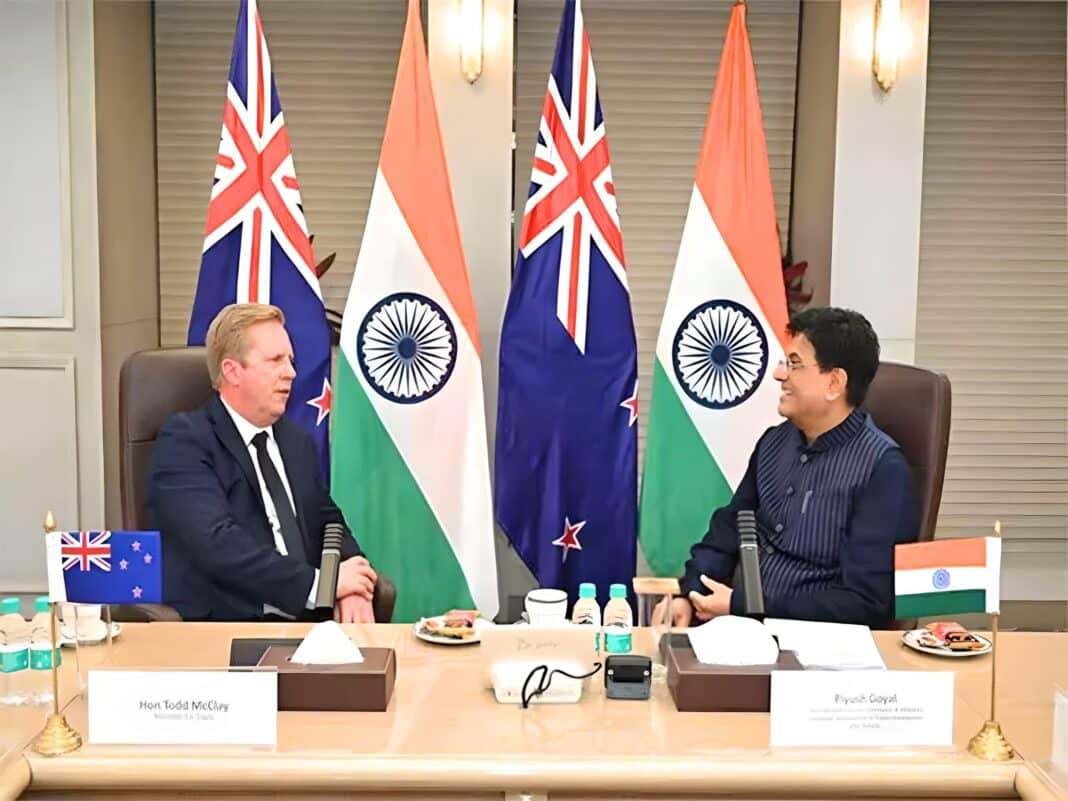The NZ and Indian Governments want to boost log exports as India looks to new markets to fuel its surging economy.
It came after the Indian Minister of Commerce and Industry, Piyush Goyal, met with his NZ Agricultural counterpart, Todd McClay, who agreed “to solve the log export issue,” which has seen trade dive over a dispute over fumigation in transit.
In recent months, NZ has looked to restore its $250 million cubic metre trade with India as a potential hedge against the Chinese market and to capitalise on its booming construction market.
Until recently, India was among NZ’s top 3 markets for sawn wood; however, concerns over the use of methyl bromide have led to trade between both countries shrinking to just $28m.
The dramatic reduction in trade centred on a dispute over handling treated timber. Following a successful delegation to India, the Ministry of Primary Industries (MPI) completed a successful trial that saw fumigation occur in India rather than in NZ.

Wood Central understands the trial finished in early November, with Shane Olsen, Manager of Plant Exports at Biosecurity NZ, reporting that the option “could provide an alternative treatment option for NZ logs to India.”
In July, Michael Fox, Chair of the India and New Zealand Business Council, led the delegation with forestry, which was identified as one of the seven priority areas by the Indian government.
From February 2022, the NZ Ministry of Primary Industries has mandated the recapture or destruction of methyl bromide emissions at the end of fumigation.
The decision created issues with trade with India, which previously stipulated that methyl bromide must be used for log imports from New Zealand.
Last year, NZ Forest Owners Association President Grant Dodson said the decision led to the collapse of New Zealand’s NZ $250 million export trade with India.
“New Zealand log exports to India fell to only $28 million last year (2021),” he said.
“It’s vital to get back into India. The longer we are out of that market, the harder it will be to get back in.”
The bilateral meetings, which are the first since the Luxon government formed a multi-party coalition last month, agreed to continue the Joint Trade Committee (JTC) meetings established under the India-NZ Trade Agreement, with “regular engagement at a senior level to meet regularly for bilateral discussions on trade, investment issues and co-operative activities.”






